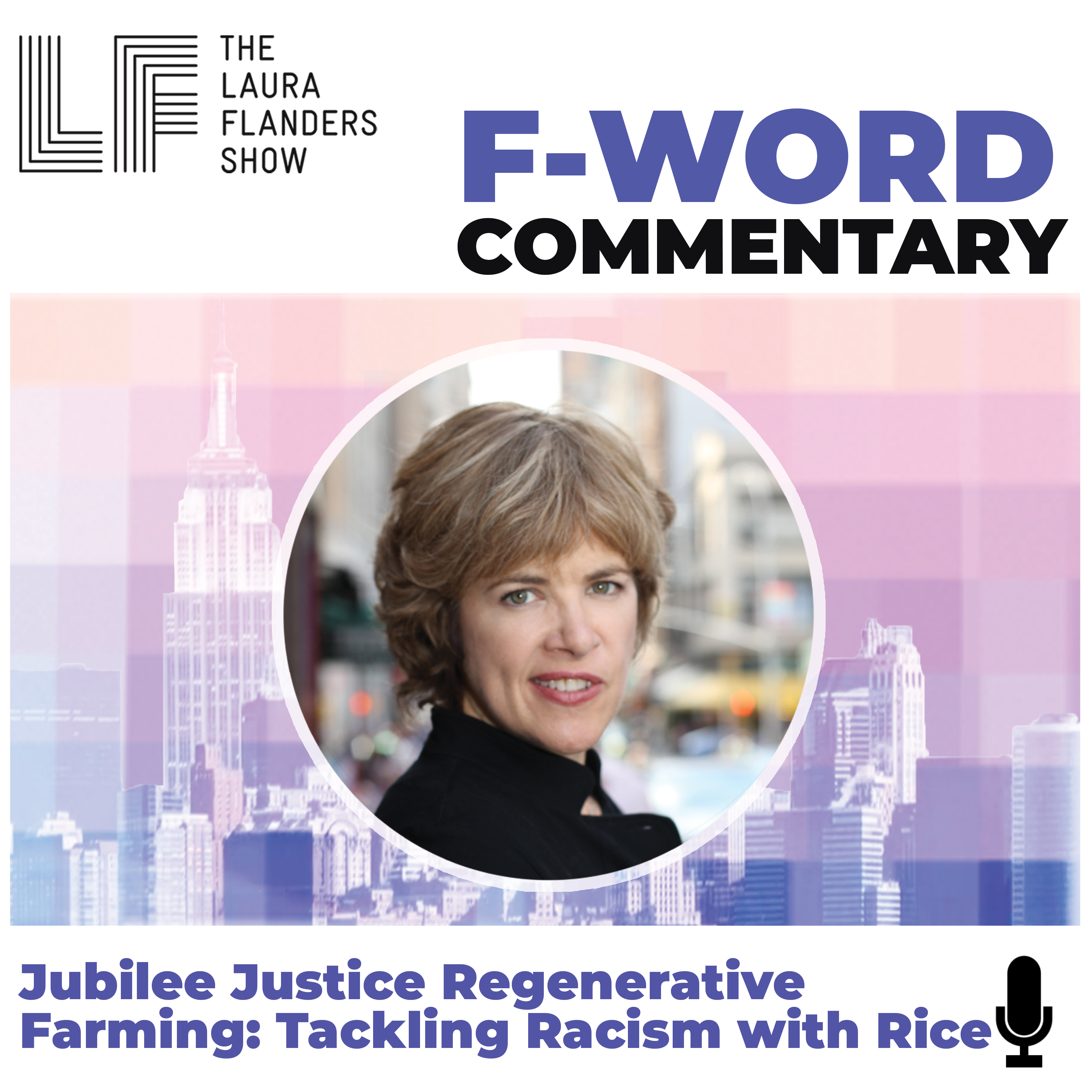Subscribe to our podcast to listen on your favorite podcast platform.
How do you nurture the soil, feed hungry bodies, and heal hurt people and places in these stressed-out times? In Central Louisiana, a network of Black farmers just may be showing how. They’re engaged in a brave experiment in rice growing, regeneration and repair.
It’s all about magic and spirit, says Konda Mason, founder of the Jubilee Justice Black Farmers’ Rice Project. Spending time with the spirits around Jubilee Justice this summer made this city girl see that was true.
For one thing, Jubilee Justice is up against history. Black farmers have lost 98% of their land over the last century, according to a Congressional report. Louisiana’s growing fields are hot, humid and haunted by all the Black and Brown bodies that were broken and terrorized here. Like the people, the land is depleted from decades of tilling and taking, and water that comes too early or too late, or poisoned.
The Black farmers are growing nutritious rice in a no-flood way that will help the climate and feed the soil while bringing good returns on limited land. Shirley Sherrod believes! She works with Mason on a Black Farmers’ loan fund, and no one knows better how hard this work is. Under the Obama administration, Sherrod was appointed Georgia Director of Rural Development at the USDA and then forced to resign after a right-wing smear campaign.
“They shot at buildings, they worked against us politically. They did everything they could to take the land away from us . . .” Sherrod told me of her experiences starting New Communities land trust — the first in the nation. Still, she turned up for the grand opening of Jubilee Justice’s Rice and Grain Mill this May.
That mill, near Alexandria, would make anyone a believer. It’s a first-of-its-kind solar-powered operation, owned and operated by a cooperative of Black farmers. Spotless and gleaming, in an old highway truck garage, it is a beautiful thing to behold.
Thirty-three-year-old Bernard Winn manages the mill. He knows what it takes to succeed here. He grew up as a Black boy amid Louisiana’s creeping bayous and anti-Black habits. If change can happen on a former plantation, in this state, with its history of genocide, slavery and industrial-scale exploitation, it can happen anywhere, he says.
And maybe it can. The Jubilee Justice Black Farmers’ Rice project is already magic. So why not believe and help to make it grow?
You can watch The Laura Flanders Show report on The Jubilee Justice Black Farmers’ Rice Project on PBS stations across the nation, or on YouTube, or subscribe to the free podcast. Find out more at LauraFlanders.org














